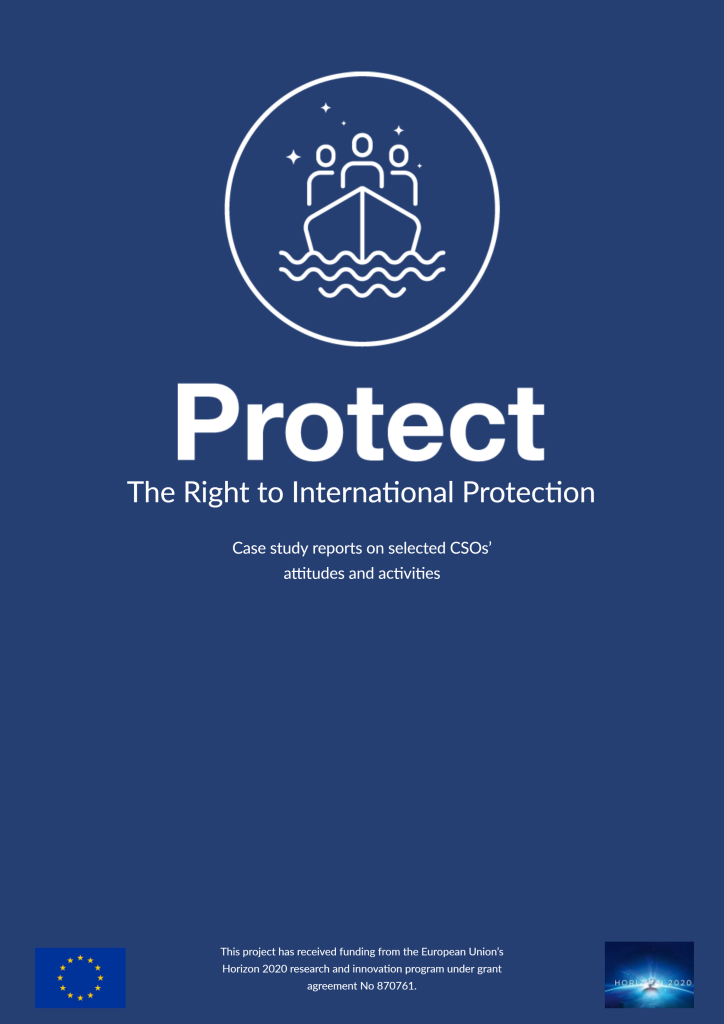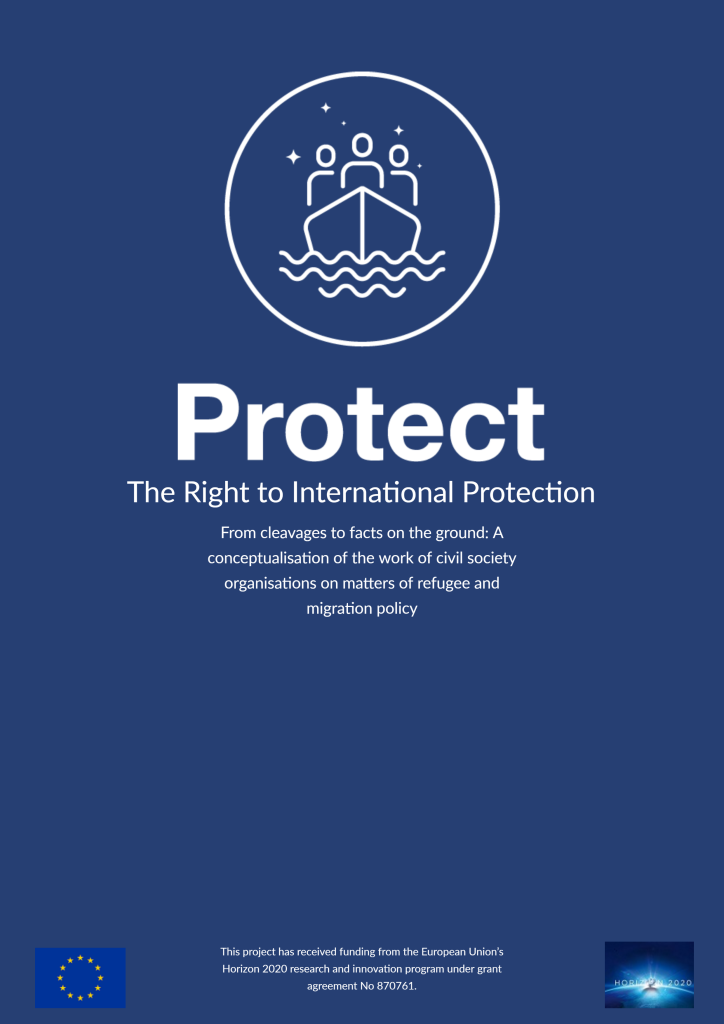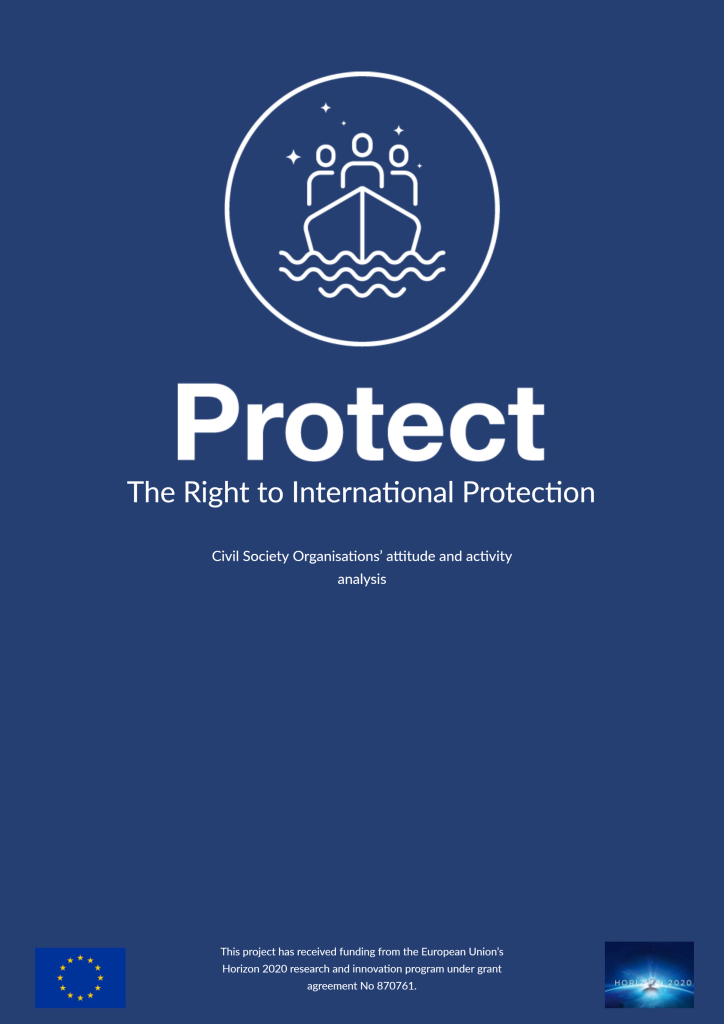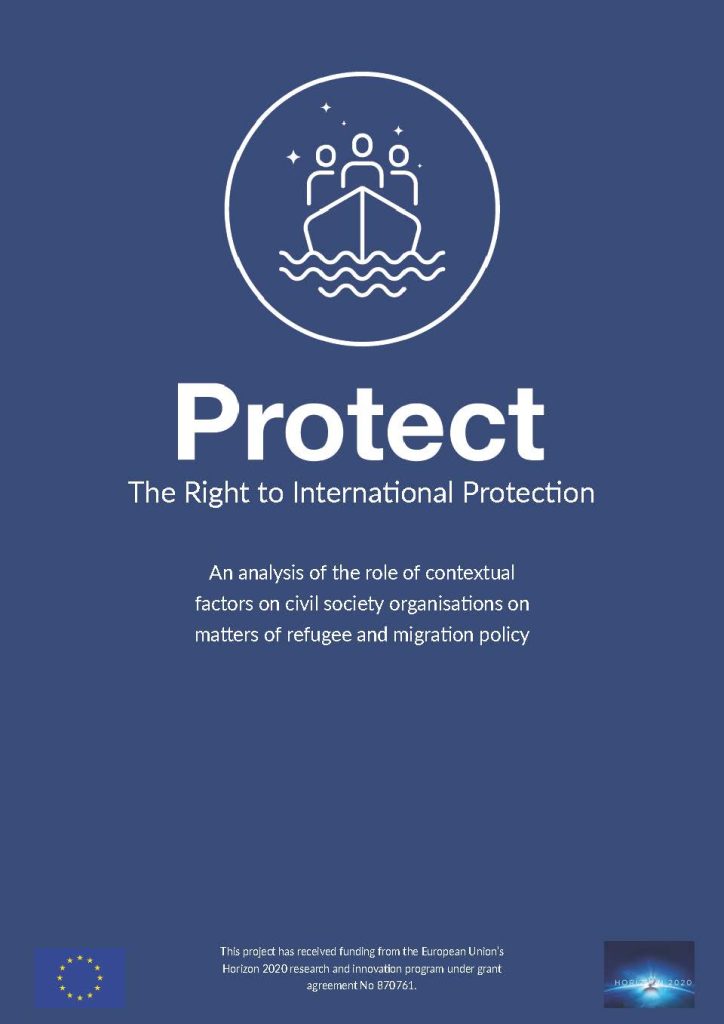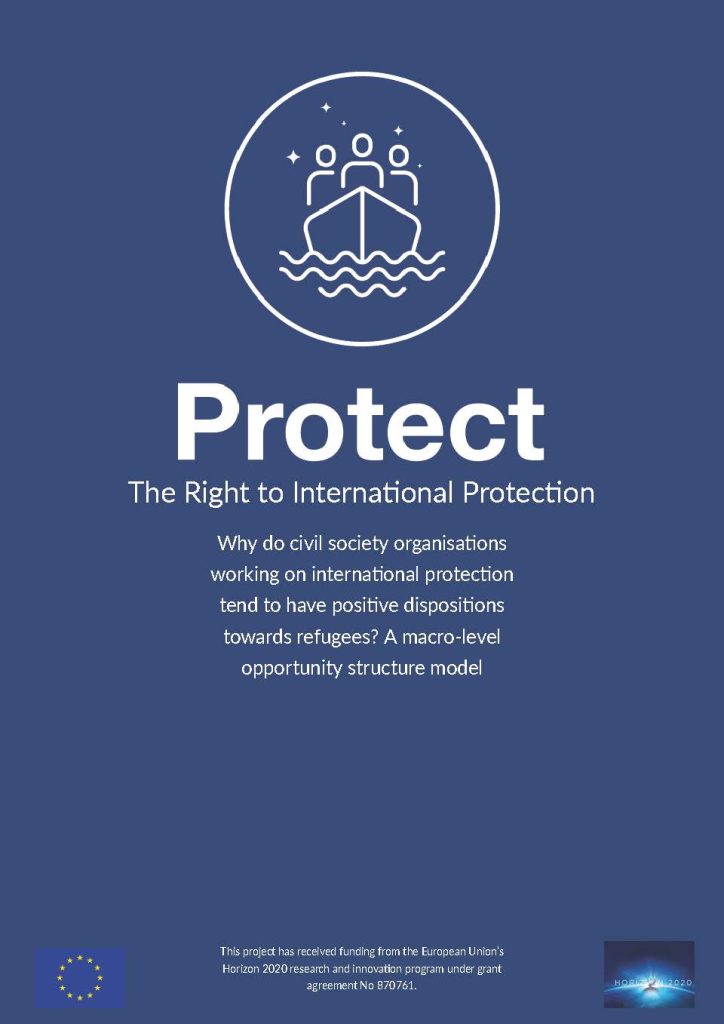The impacts of the GRC and the GMC on civil societies’ recognition of the right to international protection
Whilst it is known that CSOs often play a decisive role in the reception and integration of refugees, there is little evidence regarding their attitudes towards the UN notion of international protection and their collaboration networks. CSOs do not constitute a monolithic body but rather span over a wide spectrum of ideologies: they may be globalist, regionalist, nation-statist or nativist. Through surveys, PROTECT investigates how these political orientations affect the notions of human rights, refugee rights and asylum rights in the implementation of the Global Compacts. Conversely, the project studies the effect of the Global Compacts onto CSOs’ recognition of the right to international protection. Particular attention is paid to the changes in CSOs’ conception of human rights, refugee and asylum rights as well as to the changes in their goals, strategies and networking patterns.
Watch Work Package co-leader Professor Simon Usherwood present WP5:

Work Package 5 is co-led by The Open University and the University of Catania.
> Read more about Simon Usherwood

